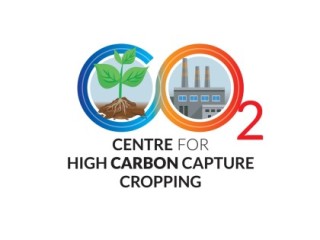
Input-efficient crops that can increase carbon capture will help farming and associated industries address climate change, but there must be confidence in achieving profitable and sustainable outcomes.
PROJECT WEBSITE
The Centre for High Carbon Capture Cropping (CHCx3) is a four-year, multi-partner project, led by NIAB's Dr Lydia Smith. The research aims to help UK farmers and growers target Net Zero and build farming resilience through diversifying their arable and forage cropping. It will enable new revenue sources through a carbon marketplace and support enhanced value chains for industries such as textiles and construction.
Objectives
- Evaluate food, forage, and industrial cropping options with potential to enhance atmospheric carbon capture, and sequestration in the soil and crop-based products
- Optimise production of renewable biomaterials for fibre, textiles, and construction, and build value chains
- Establish a UK Knowledge Hub providing resources to support effective uptake and utilisation of crops with high carbon capture potential
- Quantify carbon removals, consistent with emerging standards for measurement, monitoring, reporting and verification
- Develop carbon insetting/offsetting platforms, achieving revenue generation for farmers and supporting corporate sustainability
The project is focusing on four cropping options: cover crops; annual fibre crops (industrial hemp, flax); perennial food, feed, and forage cropping (including cereals and herbal leys); and perennial biomass crops (miscanthus, willow/poplar). Field trials and demonstrations will examine the effect of cultivation systems and agronomy on economic returns and environmental outcomes, with practical outputs including crop guides, web tools and apps.
Get involved
If you are interested in growing these crops, contact us at chcx3 [at] niab.com, or sign up to receive the CHCx3 e-newsletter.
To discover more, join one of our free CHCx3 events. We will be holding field demonstrations, webinars, and workshops throughout the project. Check the links below, visit the NIAB Event Hub to see what’s on and book your place or contact one of our partners.
Upcoming Events
| Date | Event | Host | Location |
|---|---|---|---|
|
1 May (10.30-15.00) |
Herbal ley field trials demonstration and workshop | NIAB | FarmED, Honeydale Farm, Station Road, Shipton under Wychwood, OX7 6BJ |
Previous Events
| Date | Event | Host | Location |
|---|---|---|---|
| 2 Nov 2023 (10.00-16.30) | Herbal ley establishment & management | FarmED | FarmED, Station Rd, Shipton -under-Wychwood, Chipping Norton, OX7 6BJ |
| 10 Nov 2023 (10.00-14.30) | Agri-Tech Week: Crops to products; building value-chains | NIAB | Sophi Taylor Building, NIAB Park Farm, Histon, Cambridge, CB24 9NZ |
| 22 Nov 2023 (16.00-17.00) | Cover crops webinar | CHCx3, NIAB | Online course |
|
13 Dec 2023 (16.00-17.00) |
Fibre crops webinar | CHCx3, NIAB | Online course |
| 1 Feb 2024 (10.30-14.30) | Cover crop field demo and workshop | NIAB | Morley Business Centre, Deopham Road, Morley, Wymondham, NR18 9DF |
| 8 Feb 2024 | Biomass crops webimar | NIAB | Online course |
Overview of cover crop trials at Morley
NIAB's Dr Nathan Morris gives an overview of the long-term cover crop trials at Morley in Norfolk, as part of the CHCx3 cover crop day held on 1 February 2024.
Biomass Cover Crops Webinar
Increasing carbon capture through cropping - view and download our poster used at various 2023 summer farmer-facing events.
Cover Crops Webinar
Partners
The Centre for High Carbon Capture Cropping partners are: NIAB, Biorenewables Development Centre, British Hemp Alliance, Cotswold Seeds, Crops for Energy, Elsoms Seeds, Energy Crops Consultancy, English Fine Cottons, FarmED, FC Palmer & Sons, National Farmers Union of England & Wales (NFU), Natural Building Systems, Northern Ireland Hemp Association, Rothamsted Research, Scottish Hemp Association, Terravesta, UK Hempcrete, University of York, Unyte Hemp.
Funder
 This project is funded by Defra under the Farming Futures R&D Fund: Climate Smart Farming. It forms part of Defra’s Farming Innovation Programme, delivered in partnership with Innovate UK.
This project is funded by Defra under the Farming Futures R&D Fund: Climate Smart Farming. It forms part of Defra’s Farming Innovation Programme, delivered in partnership with Innovate UK.
